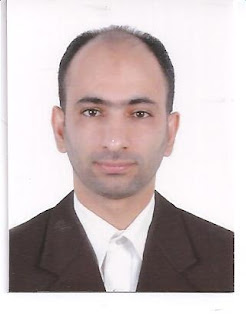
29 June 2012
Bahrain Center for Human Rights (BCHR) express concerns over the ongoing detention as well as the cruel arrest of yet another journalist and pro-democracy activist in Bahrain for merely exercising his right to freedom of expression. Journalist Ahmed Radhi (35) was arrested without a warrant, he was tortured and insulted and held incommunicado for 10 days. He was also denied access to a lawyer.

29 June 2012
Bahrain Center for Human Rights (BCHR) express concerns over the ongoing detention as well as the cruel arrest of yet another journalist and pro-democracy activist in Bahrain for merely exercising his right to freedom of expression. Journalist Ahmed Radhi (35) was arrested without a warrant, he was tortured and insulted and held incommunicado for 10 days. He was also denied access to a lawyer.
Ahmed Radhi was arrested on May 16 2012 after a raid on his house in Sanabis at 4:30 in the morning. No warrant was presented at the time of the arrest. His family believes that his arrest is a result of comments he made on international media channels including BBC and London-based Bahrain Lulu TV criticising the proposed union between Bahrain and Saudi Arabia. He has also blogged about Bahrain and used social media channels to make his comments public.
After his arrest, his family were not notified of his whereabouts nor allowed to see him for 10 days. At the current time they are allowed regular visits, but Ahmed’s lawyer was not allowed to meet him until the first week of June, nor was she told what Ahmed was accused of.
Torture
BCHR has received a letter wrote by Ahmed Radhi in which he stated that he was beaten on his head and chest by security forces and that he was verbally insulted. He was thrown on cold and hard floor handcuffed with his hands behind his back and blindfolded for 48 hours while held at the Criminal Investigation Department (CID) custody in Adliya. He said he was physically and psychologically tortured by “Isa Al-Majali” and his team to force him to confess. Ahmed was not even allowed to pray. He was interrogated several times and was beaten, humiliated and insulted each time. Later he was taken to the public prosecution where he has recorded a complaint. He was also interrogated at the public prosecution in the absence of a lawyer.
His family has said that Ahmed was forced to record a confession on camera. He is currently held at the dry dock detention centre.
Ongoing detention
On June 16, Ahmed’s detention was extended another 30 days. According to his lawyer, he was accused with igniting fire to achieve a terrorist purpose, possession of flammable substances (Molotovs), participation in assembly to disturb public security and using violence to achieve that. Reem Khalaf, Ahmed’s lawyer, stated that this was the first time they learn of the charges since Ahmed was arrested 30 days ago. Ahmed has been accused with these charges although he reported to the public prosecution that he was forced into confession under torture and was made to sign papers he had not read. No evidences has been provided to support the allegations.
Ahmed Radhi is a 35 year old freelance journalist, blogger and pro-democracy activist. Ahmed used to work as a journalist for local newspaper Al-Ayam and as a reporter for the Lebanese TV channel AlManar in the early 2000s. During that time, he faced harassment from the government and was not given a license for over 2 years while working for the TV channel.
Ahmed has been an activist calling for democracy since Bahrain’s pro-democracy movement in the 90’s. Back then he got arrested and tortured severely which caused him permanent disability, leading to him losing his hearing ability in one of his ears and having heart problems.
BCHR believes that Ahmed Radhi has been targeted with arrest and detention merely for the comments he made to the international media, a practice that the Bahraini government has been widely exercising since last year. BCHR demands that the Bahraini government release Ahmed Radhi, and other detainees imprisoned for their views, immediately and unconditionally. We demand the Bahraini government to allow the practice of freedom of expression without prosecuting those who do. The ill-treatment of detainees and their detention without trial nor access to trial are against international human rights conventions, and therefore should immediately be stopped.
